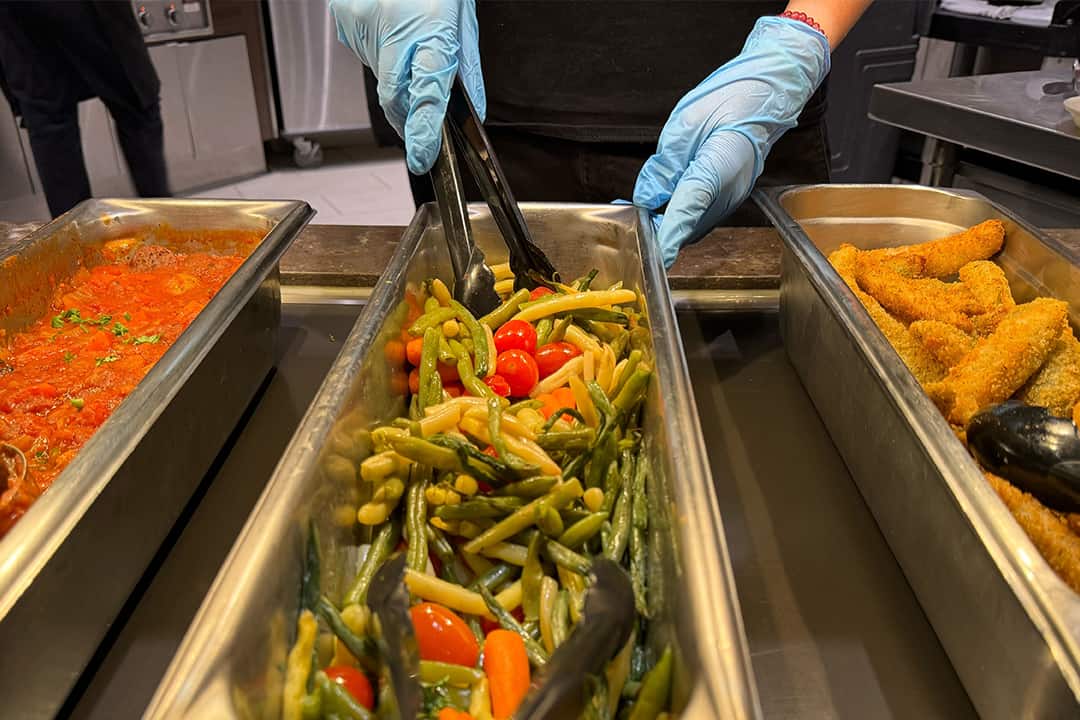Only a handful of U of T food service staff currently make a livable wage. Inflation continues to hover above the Bank of Canada’s two per cent target, and legislation limiting public employees’ wage increases has been struck down. Now, the Canadian Union of Public Employees (CUPE) 3261 is pushing for wage gains.
The majority of its 350 food service members earn $22.58 per hour, below the $25.05 Toronto Living Wage. As calculated by the Ontario Living Wage Network, a living wage encompasses the minimum amount a worker requires to cover basic expenses such as food, shelter, transportation, and simple needs beyond survival, such as a modest vacation.
The union has tabled proposals to bring the wages of all its members up to $25 per hour.
“Our members grapple with a range of challenges, including low wages, insufficient staffing which lead to overwork… [and] scheduling issues. Decent wage increases have been notably absent for a considerable time, causing our members to fall behind the rate of inflation over the past few decades,” wrote CUPE 3261 President Luke Daccord in a statement to The Varsity.
The relationship between Bill 124 and inflation
In the four years since Bill 124’s introduction by the Ontario government to its striking-down by the Superior Court of Justice in November 2022, inflation and cost-of-living pressures have eroded purchasing power for food workers on campus. The controversial bill limited annual public sector wage increases to one per cent annually.
However, with high inflation — peaking at just over eight per cent in June 2022 — and high interest rates squeezing mortgages and rents, Daccord stated that the university itself is not going far enough to offer wages commensurate with the work being done and addressing Toronto’s increasing cost of living.
The workers affected include those at residence dining halls such as Campus One, Howard Ferguson, New College, and 89 Chestnut. Similarly, workers at the Sid Smith café, Medical Sciences Building cafeterias, Robarts Library outlets, and Hart House’s Arbor Room have been impacted by Bill 124 and the university’s subsequent inability to match pay with inflation.
Daccord claimed that the university uses a “pattern bargaining” strategy in its negotiations with the labour unions that represent its employees. “When it’s time to renew contracts and renegotiate the elements of our collective agreements [typically every three years],” Daccord wrote, “U of T will bargain with some of the bigger unions and groups on campus first and then whatever is achieved there they will force on the rest of us.”
The result, Daccord wrote, is that higher-wage workers will accept compromises that are then applied to people making half their salary. Smaller unions’ comparative lack of bargaining power means that they do not have much choice; lower-wage workers, however, will feel the impact of those compromises much more acutely, since they are much more financially vulnerable.
Who is getting paid for what?
The majority of food service members, 210 of whom are covered by CUPE3261’s “Full-Time/Part-Time” agreement, do not receive tips for their work. Aside from “Full-Time/Part-Time” members, about 60 food service members, the majority of whom are students, are “casual” workers — they have no fixed hours, a maximum of 24 working hours per week, and generally make a lower hourly wage.
The union claims that the pay disparity occurs despite casual members doing the same work as full-time and part-time employees. In addition to general wage increases, CUPE 3261 has demanded equal pay for equal work that would equalize per-hour earnings across these different employment classes.
Staffing shortages impact service quality
These issues are not just impacting workers’ incomes — labour shortages around the world mean that, even in a high-immigration economy like Canada’s, there are often not enough people to staff demand.
The problem is particularly prevalent in Canada’s service-based sectors. It has been further exacerbated by the federal government’s reinstatement of its 20-hour working cap for international students.
“We’ve seen significant staffing shortages, which have resulted in heavy workloads, with many members facing burnout as a result. Some members, already juggling second or third jobs, find it challenging to keep up,” Daccord wrote. Citing the Starbucks in Robarts Library as an example, Daccord said the location “[faces] severe understaffing without any apparent efforts to address it.”
“Across Food Service departments, when someone is absent, managers rarely offer overtime, and often leave the workers on shift to fill in the gaps,” he added.
Low-pay-induced staff shortages are impacting students themselves, and not just through inconvenient waiting times — Daccord noted that food quality and prices on campus have also taken a hit.
“The cost-cutting measures in food services that have led to the understaffing in our workplaces go hand in hand with the recent uproar from students on increased food prices. Food quality has also plummeted – something that both our members and students have noted,” he wrote.
Negotiation outlook
CUPE3261’s current round of bargaining with U of T is still ongoing. The union has tabled its proposals for a living wage, along with equal pay for equal work, but issues of ‘pattern bargaining’ will potentially prove to be contentious.
There is precedent for the university changing its mind on agreement terms; Daccord noted that, after previously privatizing food services and receiving complaints from students, U of T brought back employees hired in-house.
“We think U of T is best served by U of T employees making U of T wages and benefits, and we think the university community at large agrees with that as well,” wrote Daccord.“
The parties have worked together successfully for decades to negotiate renewal [of] collective agreements without any labour disputes or disruptions,” a spokesperson for U of T wrote to The Varsity in an email. “The University looks forward to ongoing constructive and productive discussions with the Union towards a tentative agreement.”



No comments to display.